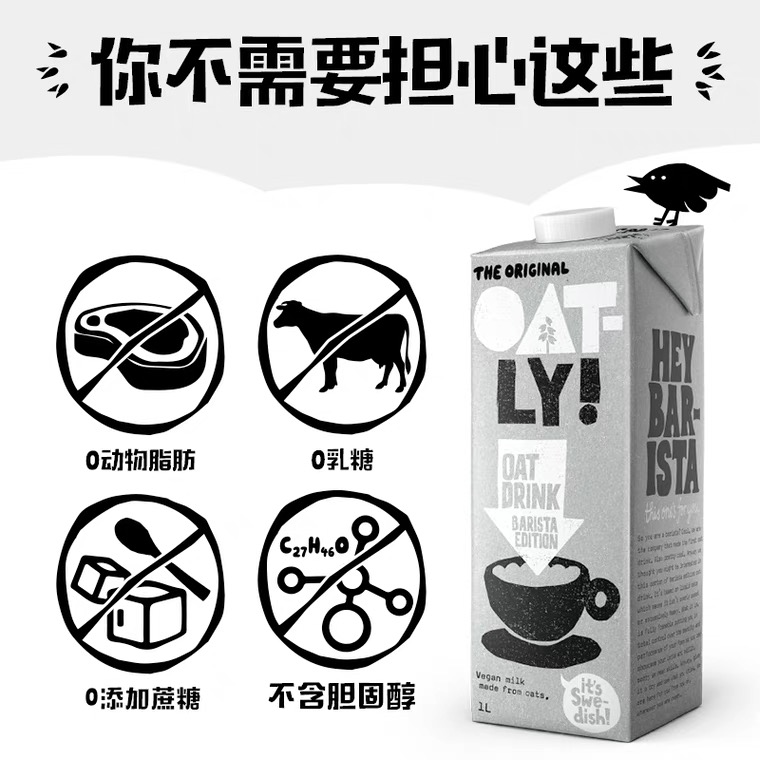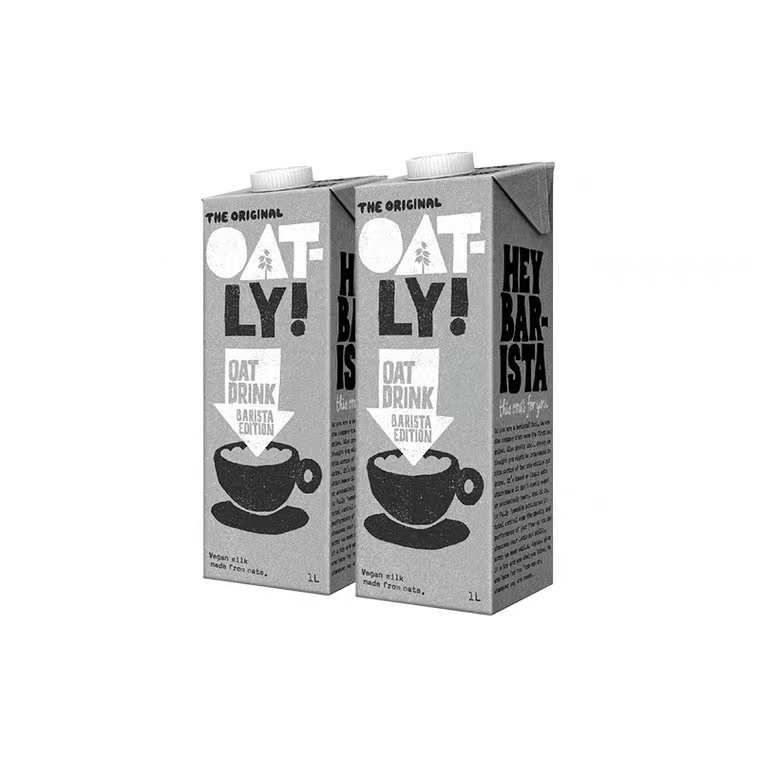What are the benefits and effects of Starbucks' same Oatly oatmeal milk and its difference from milk on the human body?
Professional coffee knowledge exchange More coffee bean information Please pay attention to coffee workshop (Weixin Official Accounts cafe_style)
More fine coffee beans, please add private WeChat Qianjie Coffee, WeChat: qjcoffeex
Oatmeal milk is a dairy-free substitute for milk. It is suitable for people with allergies, dairy intolerances or who follow a plant-based or vegan diet. Oat milk is a good source of vitamins and minerals, including calcium, and manufacturers often add vitamin B12. Front Street will look at the potential health benefits of oat milk and study how it compares to traditional whole and low-fat milk. What is oatmeal milk?

Oatmeal milk is a dairy-free substitute for milk. It is suitable for the following groups:
Follow a vegan or plant-based diet
have lactose intolerance
allergic to milk
Have gastrointestinal disorders such as Crohn's disease, ulcerative colitis or irritable bowel syndrome
Manufacturers make oat milk by soaking oats in water and then filtering the mixture. Some manufacturers also add vitamins and minerals to enhance the nutrition and flavor of oat milk. Each brand of oat milk contains different vitamins and minerals. In general, oat milk is high in nutrients, including calcium and vitamin B12. It doesn't contain all the same nutrients as traditional dairy products and can provide more protein and a wider range of vitamins. Oat milk is a good source of many nutrients, vitamins and minerals. These include: Protein The U.S. Food and Drug Administration (FDA) recommends that adults consume about 50 grams of protein per day. Protein is important for a variety of body processes, including:
immune response
fluid balance
imagine
blood clotting
The body also uses proteins to build and repair cells and body tissues and to produce hormones, antibodies and enzymes. Fiber The body needs fiber to move food and waste through the digestive system. This keeps the intestines healthy and helps avoid constipation. Fiber can also help control levels of low-density lipoprotein (LDL) cholesterol in the blood. LDL cholesterol or "bad" cholesterol increases the risk of heart disease and heart attack. Calcium Adults need between 1,000 and 1,300 mg of calcium per day from trusted sources. A cup of oatmeal milk will provide around 350 mg per day from a trusted source. The body uses calcium to:
Build and maintain strong bones and teeth
exercising muscle
between the brain and the body.
Helps blood flow through blood vessels
releasing hormones and enzymes.
One cup of plain oat milk contains approximately 20% of the Daily Phosphorus Value (DV) for adults from trusted sources. According to a trusted source from the National Institutes of Health (NIH), the body needs phosphorus for energy production and chemical processes. Riboflavin is also known as vitamin B2. It is an essential vitamin for cells, helping them grow, develop and function. It also helps convert food into energy. A glass of oat milk can provide approximately 45% of adult riboflavin DV from trusted sources. Vitamin B12 Oatmeal milk is also a good source of vitamin B12. This nutrient is important because it helps the body:
Keep your nerves healthy.
Keep blood cells healthy
make DNA

It also helps prevent megaloblastic anaemia Trusted Source. It's an anemia that makes people feel weak and tired.
Important Notice :
前街咖啡 FrontStreet Coffee has moved to new addredd:
FrontStreet Coffee Address: 315,Donghua East Road,GuangZhou
Tel:020 38364473
- Prev

How to use V60 to make a cup of coffee at home? what are the specific steps and the brewing time?
Simple, clean and convenient. If you are just starting to drink coffee, hand-made coffee is a good starting point. You may have seen someone using a V60 inverted cone funnel to slowly drain the extracted coffee through a filter. This brewing method is common in cafes around the world and can be said to be the starting point for many coffee lovers to make homemade coffee. How to make: 1. Along the seam
- Next

How to change the concentration of coffee to improve the thickness of alcohol caffeine intensity and flavor mocha pressure pot flavor
When it comes to drinking coffee, everyone has his own personal preference. Some people like the sweet and sour taste of coffee, while I prefer espresso to give me a direct hit. This irritation actually refers to the amount of caffeine, or the flavor intensity of the coffee. If you like this strong coffee as much as I do, please read on. Caffeine and flavor are the first step
Related
- Detailed explanation of Jadeite planting Land in Panamanian Jadeite Manor introduction to the grading system of Jadeite competitive bidding, Red bid, Green bid and Rose Summer
- Story of Coffee planting in Brenka region of Costa Rica Stonehenge Manor anaerobic heavy honey treatment of flavor mouth
- What's on the barrel of Blue Mountain Coffee beans?
- Can American coffee also pull flowers? How to use hot American style to pull out a good-looking pattern?
- Can you make a cold extract with coffee beans? What is the right proportion for cold-extracted coffee formula?
- Indonesian PWN Gold Mandrine Coffee Origin Features Flavor How to Chong? Mandolin coffee is American.
- A brief introduction to the flavor characteristics of Brazilian yellow bourbon coffee beans
- What is the effect of different water quality on the flavor of cold-extracted coffee? What kind of water is best for brewing coffee?
- Why do you think of Rose Summer whenever you mention Panamanian coffee?
- Introduction to the characteristics of authentic blue mountain coffee bean producing areas? What is the CIB Coffee Authority in Jamaica?

